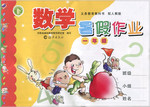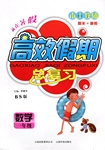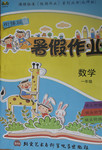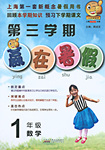题目内容
Each story is different.Some are detailed; others are unclear.Some have a beginning, middle and end; 36 wander without a clear conclusion.Yet all those things do not really matter. 37 matters to the storyteller is that the story is heard - without 38 (interrupt), statement or judgment.Listening to someone's story costs 39 (little) than expensive diagnostic testing but is key to healing and analysis.
I often thought of what a woman once taught me, and I reminded 40 of the importance of stopping, sitting down and 41 (true) listening.
I am a doctor.And, not long after, in 42 unexpected twist(扭伤), I became the patient, with a judgment of numerous sclerosis (细胞壁硬化) at age 31.Now, 20 years later, I sit all the time – in a wheelchair.For as long as I could, I continued to see patients from my chair, 43 I had to quit when my hands 44 (affect).I still teach medical students and other health care professionals, but now 45 the viewpoint of a physician and patient, I tell them I believe in the power of listening and tell them I know that vast healing takes place within me when someone stops, sits down and listens to my story.
36. others 37. What 38. interruption 39. less 40. myself 41. truly 42. an 43. but 44. were affected 45. from

 暑假作业海燕出版社系列答案
暑假作业海燕出版社系列答案 本土教辅赢在暑假高效假期总复习云南科技出版社系列答案
本土教辅赢在暑假高效假期总复习云南科技出版社系列答案 暑假作业北京艺术与科学电子出版社系列答案
暑假作业北京艺术与科学电子出版社系列答案 第三学期赢在暑假系列答案
第三学期赢在暑假系列答案I believe listening is powerful medicine. Studies have shown it takes a ___36___ about 18 seconds to interrupt a patient after he begins talking.
It was a Sunday. I had one last patient to see. I ___37___ her room in a hurry and stood at the doorway. She was an old woman, sitting at the edge of the bed, ___38___ to put socks on her swollen(肿胀)feet. I crossed the threshold(门槛), spoke quickly to the nurse, and scanned her chart noting she was in stable condition. I was almost in the clear.
I ___39___ on the bedrail(床的栏杆)looking down at her. She asked if I could help put on her socks. Instead, I launched into a monologue(独白) that went ___40___ like this, “How are you feeling? Your sugars and blood pressure were high ___41___ they’re better today. The nurse mentioned you’re ___42___ to see your son who’s visiting you today. It’s nice to have family visit from far away. I bet you really look forward to seeing him.”
She ___43___ me with a serious, authoritative voice. “Sit down, doctor. This is my story, not your story.”
I was surprised and embarrassed. I sat down. I helped her with the socks. She began to tell me that her only son lived ___44___ from her, but she had not seen him in five years. She believed that the stress of this ___45___ greatly to her health problems. After hearing her story and putting on her socks, I asked if there was anything else I could do for her. She ___46___ her head no and smiled. All she wanted me to do was to listen.
Each story is different. Some are detailed; others are vague. Some have a beginning, middle and end; others wander ___47___ a clear conclusion. Some are true; others not. Yet all those things do not really matter. What matters to the storyteller is that the story is heard without ___48___, assumption or judgment.
Listening to someone’s story costs ___49___ expensive diagnostic testing but is key to healing and diagnosis.
I often thought of ___50___ that woman taught me, and I ___51___ myself of the importance of stopping, sitting down and truly listening. And, not long after, in a(n) ___52___ twist, I became the patient, with a diagnosis of multiple sclerosis(多发性硬化症) at age 31. Now, 20 years later, I sit all the time in a wheelchair.
For ___53___ I could, I continued to see patients from my chair, but I had to resign when my hands were affected. I still teach medical students and other health care professionals, but now from the perspective(角度) of physician and patient.
I tell them I ___54___ the power of listening. I tell them I know firsthand that immeasurable healing ___55___ within me when someone stops, sits down and listens to my story.
| 【小题1】 |
|
| 【小题2】 |
|
| 【小题3】 |
|
| 【小题4】 |
|
| 【小题5】 |
|
| 【小题6】 |
|
| 【小题7】 |
|
| 【小题8】 |
|
| 【小题9】 |
|
| 【小题10】 |
|
| 【小题11】 |
|
| 【小题12】 |
|
| 【小题13】 |
|
| 【小题14】 |
|
| 【小题15】 |
|
| 【小题16】 |
|
| 【小题17】 |
|
| 【小题18】 |
|
| 【小题19】 |
|
| 【小题20】 |
|
I believe ___36__ is a powerful(强效的) medicine.
It was Sunday. I had the last __37__ to see and I get into her room. She was an old woman, sitting on the bed, trying to ____38__ her socks. Usually I said something like this: “How are you feeling? The nurse says your _39__ is visiting you today. I believe you are __40__ him.
She ___41___ with a serious voice, “ Sit down, doctor. This is my story, not yours.” I was surprised and ___42___. I sat down and helped her with the ___43__. She began to tell me that her only son lived not far away from her, ___44___ she had not seen him for five years. She believed her ___45__ problems were worse because of ___46__ her son. After hearing her story and helping her put on her socks, I asked if there was ____47___ I could do for her. She __48__ her head and smiled. All she wanted me to do was to __49__.
Each story is ___50__. Some are clear; others are not. Some are true; others are not, yet all those things do not __51_. What matters to the storyteller is that the story is heard.
Listening to someone’s story costs ___52___ but it is the key to healing(康复). I often ____53__ what the woman taught me, and I ____54__ myself of the importance of stopping, sitting down and truly listening. I __55___ the power of listening.
| 【小题1】 |
|
| 【小题2】 |
|
| 【小题3】 |
|
| 【小题4】 |
|
| 【小题5】 |
|
| 【小题6】 |
|
| 【小题7】 |
|
| 【小题8】 |
|
| 【小题9】 |
|
| 【小题10】 |
|
| 【小题11】 |
|
| 【小题12】 |
|
| 【小题13】 |
|
| 【小题14】 |
|
| 【小题15】 |
|
| 【小题16】 |
|
| 【小题17】 |
|
| 【小题18】 |
|
| 【小题19】 |
|
| 【小题20】 |
|
It was Sunday. I had one last patient to see. I approached her room in a hurry and stood at the doorway. She was an old woman, sitting at the edge of the bed, struggling to put socks on her swollen(肿胀的)feet. I entered, spoke quickly to the nurse and examined her chart. She was getting better.
I looked down at her. She asked if I could help put on her socks. Instead, I said something like this:“ How are you feeling? Your sugars and blood pressure were high but they’re better today. The nurse mentioned you were anxious to see your son who’s visiting you today. I bet you really look forward to seeing him.”
She stopped me with a serious voice, as if she was giving an order. “ Sit down,Doctor.This is my story,not your story. ”
I was surprised and embarrassed. I sat down. I helped her with the socks. She began to tell me that her only son lived around the corner from her, but she had not seen him in five years. She believed that her health problems really had something to do with it. After hearing her story and putting on her socks, I asked if there was anything else I could do for her. She shook her head and smiled. All she wanted me to do was to listen.
Later on, I often thought of what that woman taught me. Everyone has a story and each story is different. Some have a beginning, middle and end. Others wander without a clear conclusion. Yet all those things do not really matter. What matters to the storyteller is that the story is heard—without interruption or judgment.
【小题1】 The writer went to visit the older woman to .
| A.1isten to her story | B.tell her good news |
| C.help her put on her socks | D.see if she was getting better |
| A.She ate too much sugar. |
| B.She had high blood pressure. |
| C.She had too many visits. |
| D.She liked telling others stories. |
| A.not having seen her son for long | B.having no one to look after her |
| C.serious voice when giving orders | D.struggling to put socks on her feet |
| A.Everyone should learn to listen to others. |
| B.Children had better stay with their parents. |
| C.We all have a story and each one is different. |
| D.Older women are good at telling their stories. |
I believe ___36__ is a powerful(强效的) medicine.
It was Sunday. I had the last __37__ to see and I get into her room. She was an old woman, sitting on the bed, trying to ____38__ her socks. Usually I said something like this: “How are you feeling? The nurse says your _39__ is visiting you today. I believe you are __40__ him.
She ___41___ with a serious voice, “ Sit down, doctor. This is my story, not yours.” I was surprised and ___42___. I sat down and helped her with the ___43__. She began to tell me that her only son lived not far away from her, ___44___ she had not seen him for five years. She believed her ___45__ problems were worse because of ___46__ her son. After hearing her story and helping her put on her socks, I asked if there was ____47___ I could do for her. She __48__ her head and smiled. All she wanted me to do was to __49__.
Each story is ___50__. Some are clear; others are not. Some are true; others are not, yet all those things do not __51_. What matters to the storyteller is that the story is heard.
Listening to someone’s story costs ___52___ but it is the key to healing(康复). I often ____53__ what the woman taught me, and I ____54__ myself of the importance of stopping, sitting down and truly listening. I __55___ the power of listening.
|
1. |
|
|
2. |
|
|
3. |
|
|
4. |
|
|
5. |
|
|
6. |
|
|
7. |
|
|
8. |
|
|
9. |
|
|
10. |
|
|
11. |
|
|
12. |
|
|
13. |
|
|
14. |
|
|
15. |
|
|
16. |
|
|
17. |
|
|
18. |
|
|
19. |
|
|
20. |
|